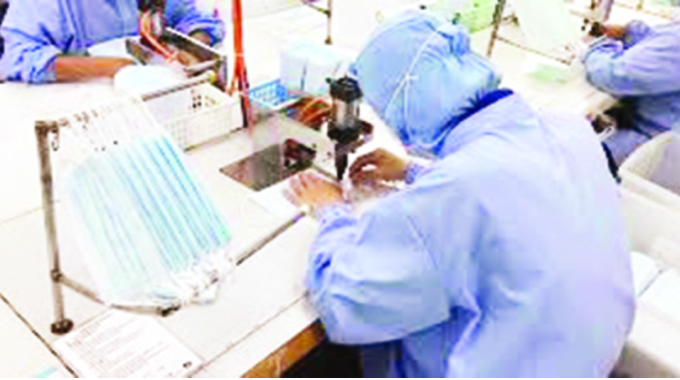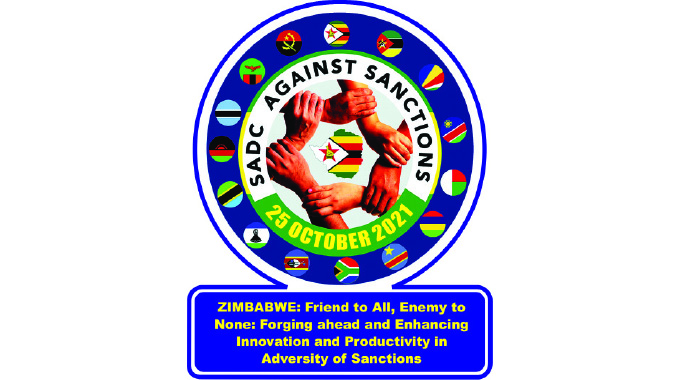Can we free ourselves from colonial mindset?

Allen Choruma Correspondent
Long after colonialism ended, my own son at 11 years old, speaks English like he was born in England and struggles to speak his own mother language, Shona.
If he speaks in Shona, he does it with such a corrupted accent that his own grandmother is bewildered!
Is colonialism and its white settler cultural dominance really gone?
Decades after our independence, the colonial past still reveals its ugly head in our daily lives, at home, work or school.
Many Zimbabweans and Africans at large share the same predicament as mine, questioning our authenticity as Black African people, if the brutal truth were told.
“Colonialism had never really ended: My life in the shadow of Cecil Rhodes” is an article written by Dr Simukai Chigudu, a Zimbabwean based in England, which appeared in the UK’s Guardian, January 14, 2021.
This article speaks of paradoxes we experience in our daily lives as African people.
Why is that in all our aspects of life, we are still living under the shadows and vestiges of colonialism and struggling to emancipate ourselves and define who we really are as Africans?
Why have we allowed our children, under our watch, to shun their own mother languages and speak foreign languages like English, French, Portuguese, as if they lived in England, France or Portugal?
Why do we spend millions of dollars sending our children to schools and universities abroad and shunning our own educational institutions?
We may fault the stars and the moon, but if the truth were told, the problem lies in us, the parents, who have made our children believe that anything to do with their roots, their Africanness is backward and must be shunned and that anything Western is progressive and must be embraced.
Anatomy of defeat
Our forebears were defeated by colonists and dispossessed of their land and wealth.
Born and bred under colonialism, our parents were made to believe that they were lesser than whites and in order for an African to succeed and prosper, they had to mimic the colonisers’ way of dressing, speaking, eating, education, and so on, shunning their own.
They also passed this belief, consciously or subconsciously to us, their children.
We too risk passing the anatomy of defeat, the same mindset we inherited from our parents, to our children, unless we change course quickly.
If we don’t change course, our children will pass the same mentality we passed to them, onward to their children and children’s children, forever engraving the anatomy of defeat in the mindsets of our African people.
Education system not fit for purpose
Here is the problem: the colonial education system taught us to be workers and not entrepreneurs, to be machine operators and not designers, to be repairers and not inventors, to be builders and not architects, to administer Western medicines and not invent drugs.
We pride ourselves on having received Western education, written and passed Cambridge O and A Level examinations, graduated from Oxford in England, the Sorbonne in France, and so on.
If our education system was British or French, as we claim it to be, why is it that the British and French invented cars, aeroplanes, spaceships, machinery, computers, and we did not?
If our education system was British or French, why is it that the British and French built industries and excelled in scientific innovations, and we did not?
It doesn’t need a rocket scientist to tell us that we did not receive either British or French education.
The colonial system fooled us and made us believe we were getting British and French education, when we were not.
We received education systems that were designed by colonialists to fit their purpose, to serve the colonial system, and not to steer African development and social transformation.
Sadly, we have perpetuated the same education systems, mostly with cosmetic structural changes.
We have also perpetuated the colonial economic models that kept us in the extractive stage and in exports of low-value primary products, while factories, industries and jobs are created in Europe and elsewhere.
Colonial economic models worked well for the colonisers, who manufactured goods in Europe using cheap and looted resources from Africa, and then produced finished products which were resold back to Africa at higher prices.
Transformation
Fellow Africans, let’s take pride in our local African languages. Language is our form of identity; it defines who we are as a people.
Let’s learn maths, science, history, medicine in our schools, colleges and universities in our local languages.
The Chinese, Swedish, Germans, Japanese, speak and learn in their native languages and they have prospered as nations.
Let’s change colonial education systems that were designed to serve the interests of our colonial masters and not ours.
We have sent our children overseas to study at Harvard or Cambridge, but this has not significantly changed African economies and societies.
Many of our offspring have remained abroad and fewer have returned. Those that did return, placed in positions of leadership, have sadly not been able to effect meaningful change at home.
Perhaps what they learnt at Harvard or Cambridge is not suitable and relevant for our own African situation and environment.
If that’s the case, why don’t we transform our own colleges and universities to fit our own purpose, so that they can produce graduates who can transform our economies and societies?
Baffour Ankomah, editor-at-large for New African magazine, shared with me an interesting video on social media, about a young man from the Gambia, called Ousman Touray.
Ousman declined a scholarship to study in Canada, instead opting to take a Master’s degree in development studies in Rwanda.
Ousman believes we have good institutions in Africa, and it’s high time we value and take pride in what we have.
“Top intellectuals in Africa have studied in the highest universities in the world, but what have those brought us?” he questions.
Africa’s development and social transformation agenda can only be brought about with solutions derived from and within our African environment, not from outside it, argues Ousman.
African countries should start building education systems that meet our national developmental aspirations and address the needs of our younger generations. Young Africans, like Ousman from the Gambia, should move away from believing that better education opportunities can only be found outside Africa, in Europe, America or elsewhere.
Changing course
Professor Amon Murwira, the Minister of Higher and Tertiary Education, Innovation, Science and Technology Development, has taken the bull by the horns and is determined to change the course of the education system inherited from the British colonialists.
Prof Murwira is driving a concept in higher education called ‘Education 5.0’ — a system that is knowledge and technology driven and focuses on innovation, invention and industrialisation.
It teaches students to be creators of jobs and not job seekers, innovators and not copycats, inventors and not repairers.
Zimbabwe is starting to see innovation and industrial hubs sprouting in all its university centres, universities producing industrial patents, university graduates becoming entrepreneurs and launching start-up companies, and so on.
Zimbabwe has yawning skills gaps in the areas of engineering and technology, natural and applied sciences, medical and health sciences and agriculture.
The Education 5.0 programme seeks to fill these yawning skills gaps in science and technology, as well as develop skills in applied arts and humanities and business and commerce.
We will continue to live “in the shadow of Cecil Rhodes” as Simukai Chigudu puts it, if we don’t change our mindset and work to build the Africa we want, as espoused under the African Union’s Agenda 2063.
The anatomy of defeat will continue to haunt us if we do not change our mindsets and start to believe in ourselves and our capabilities, taking pride in our languages, inheritance and traditions, and valuing what we have — our people, our plentiful resources.
We need to marvel at our indigenous things and innovate to drive development from within, using our own homegrown solutions, that work the best for us. — New African Magazine









Comments